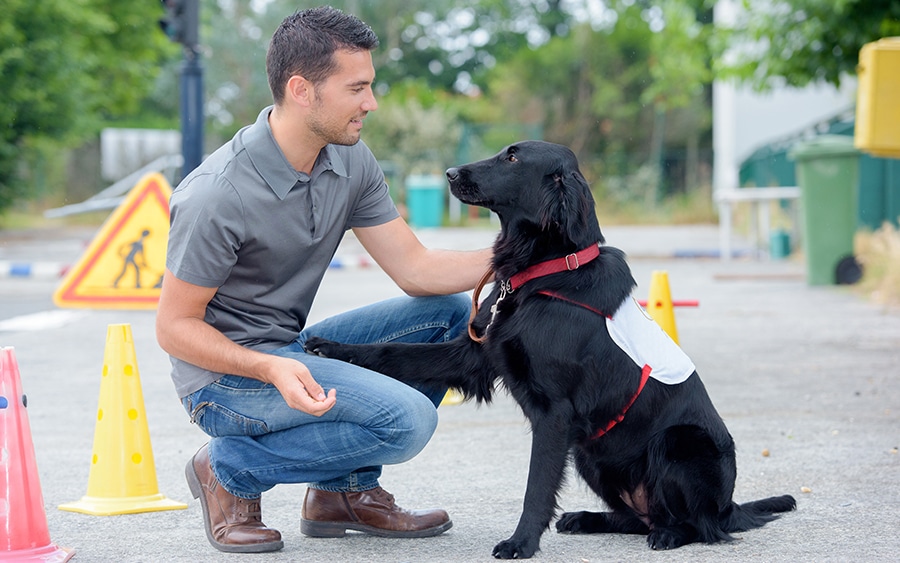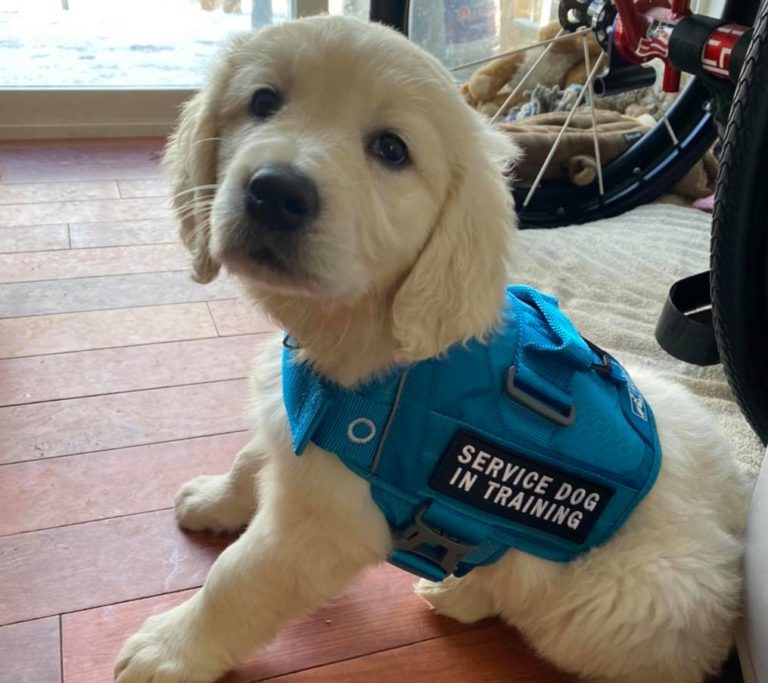The Ultimate Guide to Dog Training Charlotte: Techniques for Success
The Ultimate Guide to Dog Training Charlotte: Techniques for Success
Blog Article
Unlock Your Pet's Prospective: Proven Dog Training Methods for Success
Reliable pet training is a nuanced procedure that pivots on recognizing canine actions and utilizing clinically backed strategies. By including favorable reinforcement, developing clear commands, and prioritizing socialization, canine owners can cultivate an effective partnership with their family pets.
Understanding Pet Behavior
Recognizing dog actions is essential for efficient training and promoting a favorable partnership between pets and their proprietors. An extensive grasp of canine body movement, vocalizations, and social interactions is essential for acknowledging their requirements and emotions. Pet dogs connect mainly through non-verbal cues; for example, a wagging tail may show enjoyment, while pinned ears can indicate fear or submission.

Moreover, ecological variables play a substantial duty in forming a pet's habits. Modifications in regular, brand-new environments, or the presence of unknown people can lead to stress and anxiety or anxiousness in dogs. Acknowledging these triggers makes it possible for owners to reduce damaging reactions and establish suitable training techniques.
Inevitably, a deep understanding of canine actions lays the foundation for successful training approaches, improving both actions and the general bond between the canine and its owner. dog training charlotte. This understanding is crucial for promoting a well-adjusted, pleased canine buddy
Positive Support Methods
Reliable training relies heavily on favorable reinforcement methods, which have actually been revealed to produce significant lead to forming wanted habits in pets. This approach entails awarding a dog for showing specific actions, thus increasing the chance that these actions will certainly be repeated. Rewards can take numerous forms, consisting of deals with, praise, playthings, or play, relying on what inspires the private pet dog.

It is vital to gradually terminate incentives as the pet learns the actions, transitioning to intermittent reinforcement. This strategy keeps the habits with time while protecting against dependence on constant rewards. By concentrating on positive reinforcement, trainers can cultivate a relying on partnership with their pet dogs, advertising a healthy and balanced and cooperative training setting that improves total obedience and performance.
Establishing Constant Commands
An essential facet of successful pet dog training is the establishment of regular commands. Uniformity in commands is crucial for efficient interaction between the dog and the trainer. When commands are consistent, pets discover to link certain words with preferred behaviors, which accelerates the training process and enhances understanding.
To develop consistent commands, it is essential that all member of the family use the very same terms and gestures. As an example, if someone utilizes "sit" while one more says "sit down," it can create complication for the dog. Select clear, distinctive words for commands and ensure everybody associated with the pet dog's training sticks to these selections.
Enhance commands via constant practice, making sure that the canine gets adequate possibilities to respond appropriately. When a canine efficiently follows correcting dog behavior a command, instant favorable support must comply with.
Finally, hold your horses. Developing constant commands requires time and initiative. With devotion and quality, you will certainly aid your pet establish a solid understanding of expectations, inevitably leading to a mannerly friend.
Socialization and Direct Exposure
Mingling a pet is important for promoting a positive and well-adjusted friend. This procedure entails revealing your dog to a variety of environments, people, and various other animals to create their social skills and flexibility. Early socializing, preferably in between the ages of three to fourteen weeks, is vital, as it lays the foundation for a dog's future behavior.
During socialization, purpose to offer positive experiences in Continued various settings, such as parks, active streets, and homes with other animals. Introduce your canine to various stimuli, consisting of noises, sights, and smells, ensuring that each encounter is rewarding. This direct exposure helps reduce fear and anxiety, paving the means for a more resilient canine.
Involving in controlled team play sessions with various other pets can additionally enhance social skills, teaching your pet dog proper interactions and limits. Prioritizing socialization will substantially add to your pet dog's general joy and habits throughout their life.
Conquering Common Educating Difficulties

Dogs might have a hard time to concentrate in unfamiliar or busy settings. Gradually desensitize your dog to diversions by starting training in a peaceful setting and gradually presenting more stimuli as they end up being skilled.
Additionally, behavioral problems like leaping or excessive barking can become aggravating. Address these by instructing alternative actions, such as resting smoothly when welcoming guests. Consistency and patience are important; reinforce preferred habits continually and avoid scolding, which can result in complication.
Finally, identify that each dog is distinct, and training timelines may vary. Tailor your strategy to your dog's individual requirements, and seek professional guidance if needed. With perseverance and the ideal approaches, getting over these challenges can result in a well-trained, happy canine buddy.
Conclusion
To conclude, opening a canine's possible necessitates a thorough strategy that includes an understanding of canine habits, the application of favorable reinforcement methods, and the establishment of consistent commands. Early socialization and direct exposure to varied settings even more enhance a canine's adaptability and confidence. By resolving typical training obstacles with tailored techniques and perseverance, a cooperative and unified partnership between pet dog and trainer can be fostered, inevitably look at here now leading to a mannerly friend qualified of growing in different circumstances.
Reliable dog training is a nuanced procedure that hinges on comprehending canine habits and utilizing scientifically backed techniques.Recognizing pet dog actions is necessary for effective training and fostering a positive relationship in between pets and their proprietors.Reliable training depends greatly on positive reinforcement strategies, which have actually been shown to generate substantial results in shaping desired actions in canines. When commands are uniform, dogs discover to connect details words with wanted actions, which speeds up the training process and improves understanding.
In verdict, opening a dog's prospective demands a comprehensive technique that incorporates an understanding of canine behavior, the application of positive support methods, and the establishment of regular commands.
Report this page